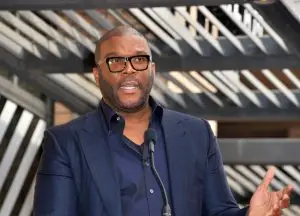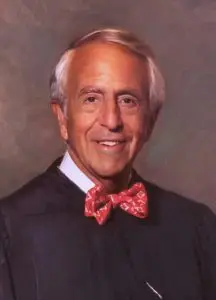Writing for the British law firm, Leigh Day, attorney Georgia Rycroft, an associate of the firm who focuses on human rights abuses, examines why Mohamed Al Fayed, CEO of Harrod’s of London, was never held to account for claims of sex trafficking that have come to light since his death.
Rycroft says that recent allegations concerning Al Fayed have followed a familiar pattern to those of Harvey Weinstein and the notorious sex trafficker of underage girls, Jeffrey Epstein.
“Power and wealth have long proved robust shields for men who seem able to operate in plain sight. Like others, Fayed is now deceased and can never be made to answer for his actions,” Rycroft states.
Rycroft poses the questions of how and why has it taken so long for survivors of appalling abuse to be heard? And will anything change when it comes to the accountability of wealthy and powerful abusers?
Sex Trafficking and Historical Prejudice
Sex trafficking has existed in various forms throughout history, but growing domestic and international concerns about exploitation led to early attempts at regulation, says Rycroft. For instance, in 1910, the International Convention for the Suppression of the White Slave Traffic was signed under the League of Nations, marking one of the first global efforts to define and combat trafficking. This initiative, however, reflected the biases of the time, focusing primarily on the protection of “white” women and influenced by the paternalistic attitudes of the era. The convention aimed to punish those who, through fraud, violence, threats, or abuse of authority, coerced or enticed women and girls for exploitation. While a step forward, it was shaped by the social prejudices and limitations of its period.
Over the decades, the United States has addressed sexual exploitation through a combination of federal and state laws. Legislation such as the Mann Act of 1910, originally aimed at combating “white slavery,” criminalized the transportation of individuals across state lines for illegal sexual purposes, including exploitation through fraud or coercion. States have also enacted laws to address issues like human trafficking, exploitation, and coercion, creating a framework to prosecute offenses related to the procurement or manipulation of individuals for unlawful sexual activities.
In the case of Mohamed Al Fayed, he seemed to evade investigation entirely, and those within his network who may have facilitated years of abuse were also not seriously scrutinized. This raises a critical question, says Rycroft: why?
The Case of Mohamed Al Fayed
The allegations surrounding Mohamed Al Fayed’s alleged trafficking network are staggering, and it appears unlikely that he acted alone. Reports describe the deliberate recruitment of young women under false pretenses, such as promises of lucrative employment, gifts, or financial incentives, followed by threats and intimidation in the context of abuse.
Supervisors allegedly facilitated these actions by directing women to Fayed’s office, security guards reportedly escorted them to and from his private residences, and personnel may have approved questionable staff transfers. Legal professionals allegedly contributed by drafting extensive non-disclosure agreements to suppress survivors’ voices.
These allegations depict a pattern of severe abuse, where vulnerable young women were selected and exploited by a powerful individual. As noted in Tom Bower’s Unauthorised Biography in 1998, “Fayed felt no shame about his conduct. Indeed it was fun, which over the past years he had grown to enjoy – by assuming that Harrods’ young female employees, so vulnerable and financially dependent, belonged to him.
Failed Accountability
The allegations against Mohamed Al Fayed extend far beyond his leadership of Harrods and his own actions. Claims include threats orchestrated by his private security team, the widespread use of non-disclosure agreements to silence survivors, demands for the destruction of evidence, and bribery of senior staff. Despite these activities being conducted openly, they were left largely unchallenged, highlighting systemic failures in holding powerful individuals accountable, Rycroft notes.
Fayed’s wealth and influence enabled him to silence survivors and operate without serious legal repercussions. According to the London Metropolitan Police, they received reports from 21 women accusing Fayed between 2005 and his death in 2023, though allegations of sexual assault date back as far as 1995. An investigation is now underway, but for many survivors, this reflects a broader pattern of historical institutional failures.
These systemic issues raise serious questions about the police’s ability to investigate cases like Fayed’s, where survivors were ignored or dismissed for decades.
In addition to police failures, there are troubling allegations of oppressive legal tactics used to silence survivors, media complicity, and the refusal of professional bodies like the General Medical Council to investigate claims of unethical behavior by medical professionals allegedly involved in abusive practices.
Rycroft references Tony Leeming, a former Harrods department manager, who in a recent BBC documentary summarized the widespread awareness of Fayed’s actions: “I think if I knew, everyone knew. Anyone who says they didn’t is lying, I’m sorry.”
Understanding how individuals like Al Fayed, Epstein, Weinstein and institutions like Harrod’s operated and why survivors were silenced is crucial to preventing similar abuses in the future and ensuring that no one, regardless of wealth or power, operates with impunity, Rycroft concludes.




